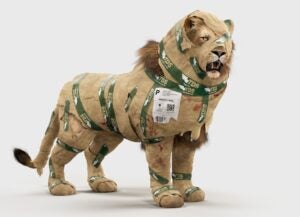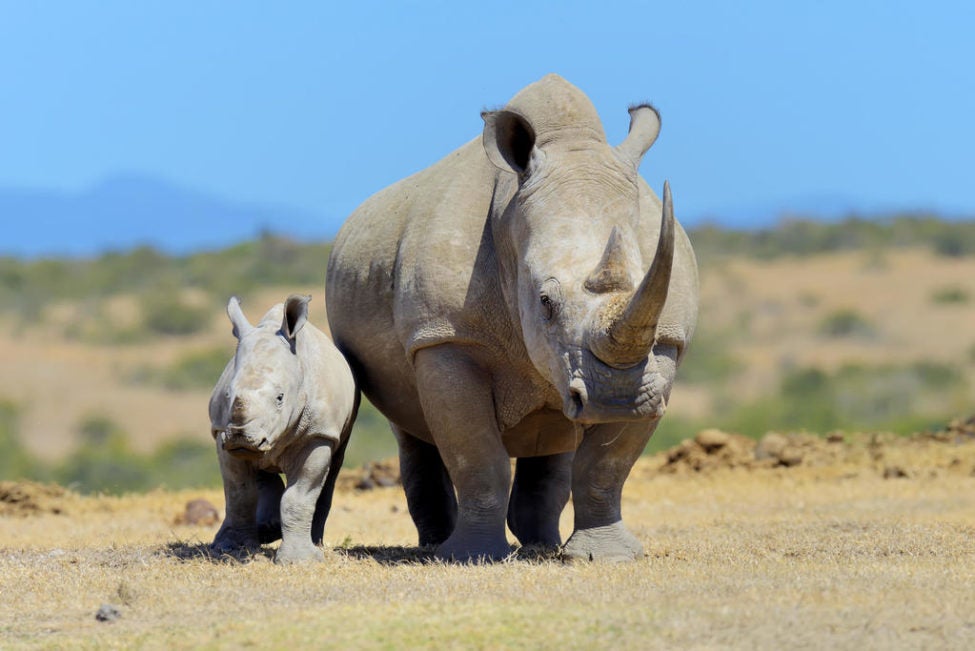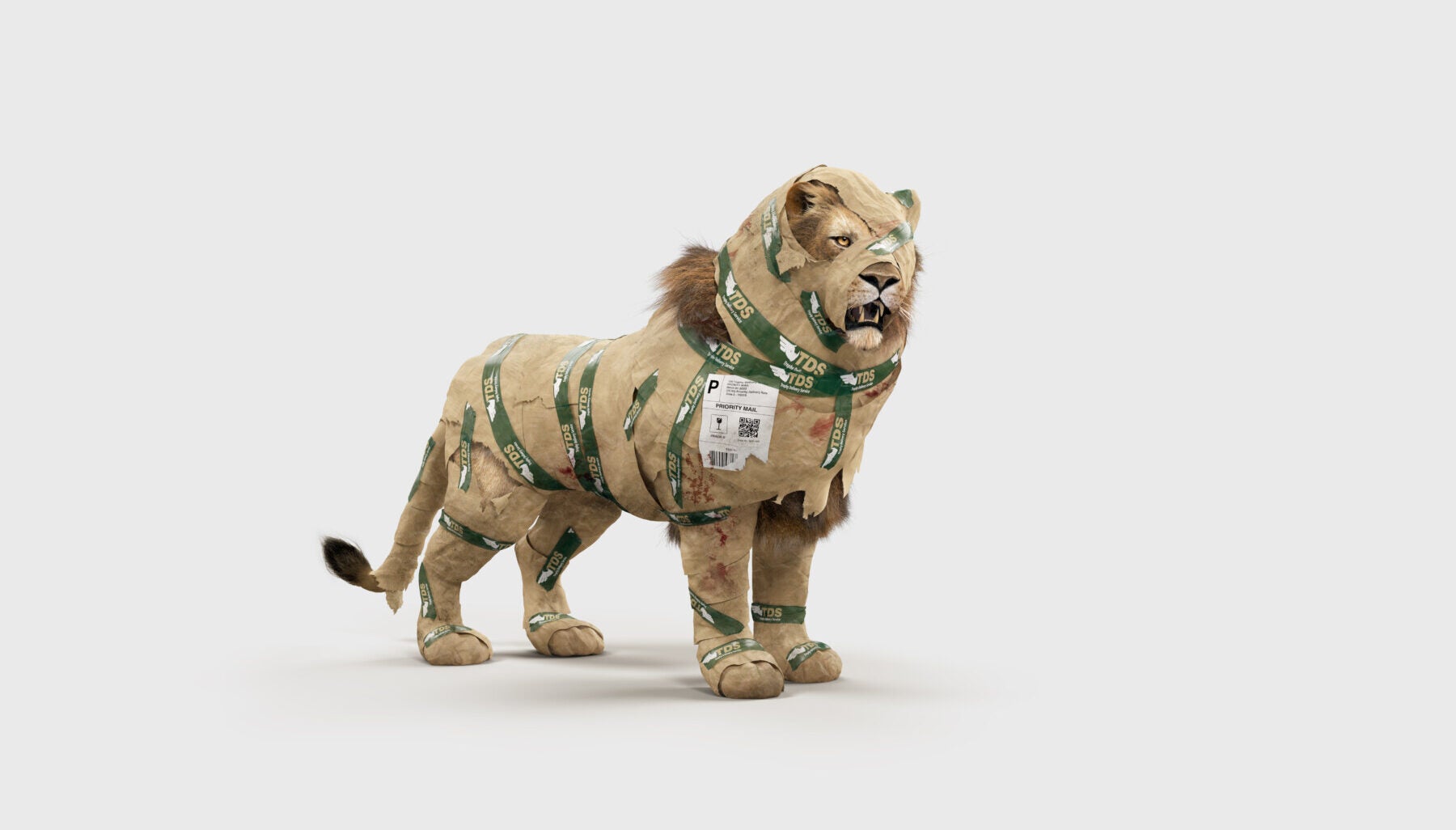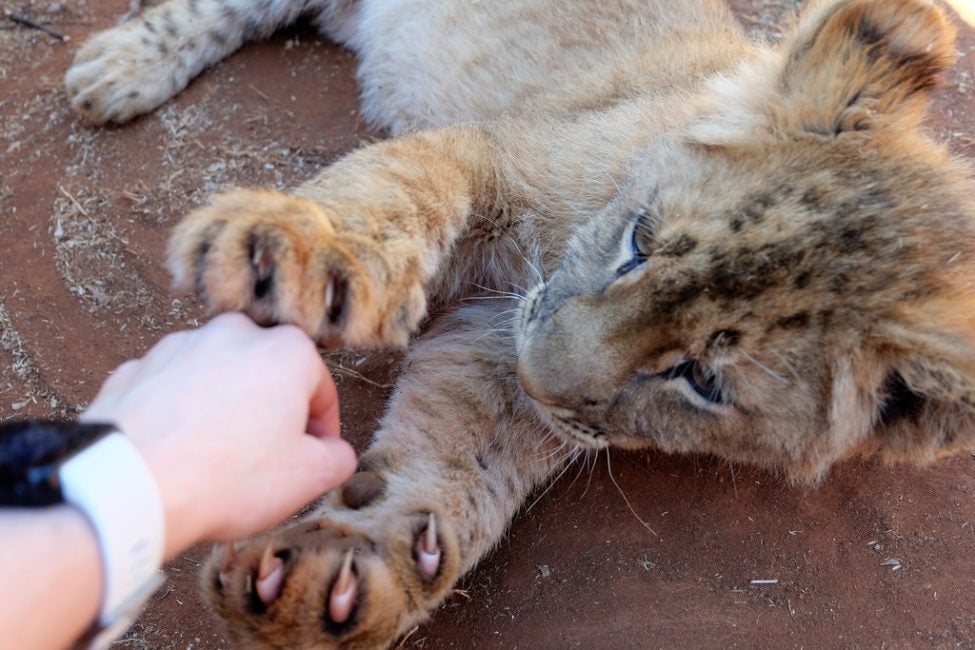
BUENOS AIRES, Argentina—The vast majority of Argentine society opposes trophy hunting in the country and the export and import of trophies. This was demonstrated by the results of a recent survey conducted in Argentina in May 2022 regarding this practice, which consists of killing animals for competition or pleasure with the intention of obtaining parts of the animals to exhibit them.
According to the survey, which was carried out by the consulting firm at the request of Humane Society International, 86% of respondents oppose trophy hunting. That figure goes up to 93% when it comes to hunting threatened or endangered species such as lions, elephants and giraffes—with 92% of respondents openly in favor of a ban on trophy hunting.
When asked about the presence of foreign hunters in the Argentine territory, 91% of those surveyed agreed that the practice should be prohibited, as should the exports of trophies that result from such hunting and the import of trophies from Argentine hunters abroad. This trend is in line with the growth of a global movement that advocates for animal welfare.
“Trophy hunting is a destructive practice that harms animal welfare and species protection. Unfortunately, trophy hunting exists in many countries and Argentina is one of the top exporting countries of hunting trophies. We have the opportunity to become an agent of change. By encouraging the cessation of this activity, we can be an example to follow,” said Marina Ratchford, a representative of Humane Society International in Argentina.
Argentina’s minister of Environment and Sustainable Development Juan Cabandié highlighted the importance of the opinion poll and stated that it is “evidence of the growing environmental conscience” in the country. “The social perception is in line with this,” he said, referring to the recent poll demonstrating that trophy hunting is an arcane practice that is currently rejected by nine out of 10 Argentinians.
Teresa M. Telecky, vice president of HSI’s Wildlife department, said: “Trophy hunting is a destructive, abusive and archaic practice that threatens the survival of wild populations. Argentina is a significant contributor to this unethical industry. The country has the power to step up as a world leader in conservation and end the import and export of these macabre trophies once and for all.”
There has been much recent progress in the fight against trophy hunting. Not long ago, Argentina’s Ministry of Environment and Sustainable Development, led by Juan Cabandié, clarified current regulations on exports and inter-jurisdictional transit of hunting trophies.
Under Cabandié, the environmental ministry has prohibited the importation, exportation and interjurisdictional movement of hunting trophies of native fauna species through Resolution 133/22. The ministry is also working on an updated regulation to prohibit the importation of all hunting trophies to Argentina. With respect to animal welfare and wildlife preservation efforts, the minister singled out the Environmental Control Brigade’s operations to rescue animals from illegal wildlife trafficking, with more than 700 animals rescued to date. These animals are currently living in rescue and rehabilitation centers for fauna.
In 2021 Aerolineas Argentinas instituted a policy that prohibits the transport of hunting trophies of Argentina’s native fauna on any domestic or international flight.
Humane Society International has joined with groups in Argentina’s nonprofit sector linked to the protection of wildlife, such as Pumakawa and Fundacion Cullunche, to urge the government to acknowledge and act upon the public’s opposition to trophy hunting as well as the export and import of hunting trophies.
“Trophy hunting is an inhumane form of hunting that results in and encourages methods that increase the suffering of animals. Not setting a limit on practices like these is harmful to the policies and advances built from the effort and work carried out by the Ministry of Environment and Sustainable Development and other organizations,” added Jennifer Ibarra of the Cullunche Foundation.
According to information from the Convention on International Trade in Endangered Species of Wild Fauna and Flora (CITES), between 2014 and 2018, Argentina was among the top 10 exporters of hunting trophies and the world’s 23rd largest importer of hunting trophies of protected mammals. Among the most imported animals are the African elephant, Hartmann’s mountain zebra, African lion, hippopotamus and chacma baboon. The majority of hunting trophy exports were of blackbuck and pumas, with nearly all blackbucks taken from the wild and most pumas bred in captivity.
What is happening around the world:
- The High Court of the Western Cape granted an interim suspension of relevant hunting quotas in the application for an interim interdict against the South African Department of Forestry, Fisheries and the Environment’s 2022 hunting and export quotas for leopard, black rhino and elephant.
- The International Union for the Conservation of Nature Ethics Specialist Group called on the German government to end the practice of trophy hunting imports for ethical, ecological and legal reasons. This was followed by an announcement from the Environment Minister Steffi Lemke of the intention to restrict the import of hunting trophies from protected animal species to Germany.
- The Belgian Federal Parliament unanimously passed a resolution demanding that the government immediately stop authorizing trophy import permits of species protected under certain international trade regulations.
- In Italy, a bill to ban the import and export of hunting trophies of protected species—the first of its kind in that nation—was presented to the Chamber of Deputies in Rome.
- The Spanish Parliamentary Association for the Defense of Animal Rights presented a motion for resolution to prohibit the import and export of hunting trophies of protected species listed in Annexes A and B of the Wildlife Trade Regulations.
- The United Kingdom committed to one to one of the world’s strongest policies banning the import of hunting trophies of over 7,000 protected species.
- Costa Rica pioneered this paradigm shift in Latin America in 2015 when it banned recreational hunting in response to a public petition.
- In 2019, Colombia banned recreational hunting and in 2021 banned the import of hunting trophies as part of a new law to strengthen the fight against wildlife trafficking.
- Recently, Chile’s President Gabriel Boric committed to prohibiting the hunting of native fauna.
The poll of 1,001 residents of Argentina’s Northwest, Northeast, Central, Buenos Aires, Mountain and Patagonia regions was conducted by CIO Investigacion from March 31 to April 9, 2022, with a margin of error of +/- 3%.
Media contact: Rodi Rosensweig, senior principal strategist media relations: rrosensweig@humanesociety.org ; 202-809-8711






